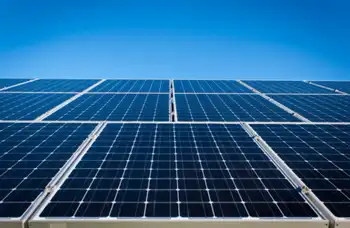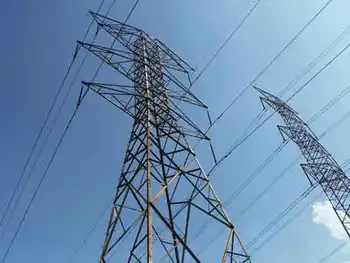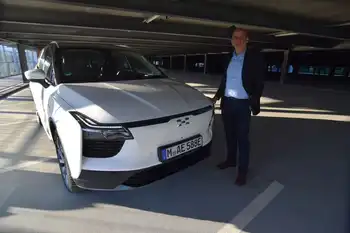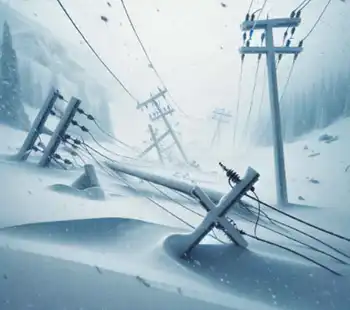Canada not invited to tour Iranian nuke sites
TEHRAN, IRAN - The Tehran government confirmed that it has invited world powers and its allies in the Arab and developing world to tour Iranian nuclear sites before a high-profile meeting late January on its disputed nuclear program.
An Iranian official speaking on condition of anonymity from a European capital said facilities to be visited include the nuclear enrichment facility at Natanz and the Arak site where Tehran is building a plutonium-producing heavy water reactor. Both facilities are considered suspect by the West because they could be used to make the fissile core of nuclear warheads TehranÂ’s refusal to shut them down has triggered United Nations Security Council sanctions.
The Associated Press reported the invitation to tour the facilities, citing a letter from a senior Iranian envoy that suggested the visit take place the weekend of January 15 and 16.
Foreign Ministry spokesman Ramin Mehmanparast confirmed the offer, saying it went to “the EU, the non-aligned movement and representatives from 5+1 countries.”
The “5+1” countries are the six world powers negotiating with Iran over its nuclear program: the five permanent UN Security Council members — the United States, Britain, France, Russia and China — plus Germany.
Canada is not a member of the UN Security Council. It withdrew before a third round of voting in October.
CanadaÂ’s UN Ambassador John McNee made the surprise announcement after the second ballot gave Portugal 113 votes and Canada just 78, both short of the 128 votes required for victory, but reflecting a widening margin.
Mehmanparast said Iran would identify the invited countries at a later time, but it appears that not all of the “5+1” nations received invitations. A diplomat familiar with the invitation said the U.S. — the greatest critic of Iran’s nuclear ambitions — and the other Western powers in the group were not invited, in an apparent attempt to split the six powers ahead of planned talks on Iran’s nuclear program later this month.
Mehmanparast said the invitation was a sign of Iran’s “good will” and greater transparency about its nuclear program. Iran insists its nuclear program is designed to generate power, but the West suspects that’s just a cover to build bombs.
Mehmanparast did not give a firm date, but said the tour would take place before the January talks.
The new round of negotiations is meant to explore whether there is common ground for more substantive talks on IranÂ’s nuclear program. A round of talks in Geneva in December yielded no breakthrough.
The UN Security Council has demanded that Iran freeze uranium enrichment — a process that can produce both fuel and fissile warhead material. But Iranian negotiators flatly ruled out discussing such demands at the Istanbul meeting.
The offer of a visit comes more than three years after six diplomats from developing nations visited IranÂ’s uranium ore conversion site at Isfahan, which turns raw uranium into the gas that is then fed into enriching centrifuges. Participating diplomats told reporters they could not assess IranÂ’s nuclear aims based on what they saw there.
The new offer appeared more wide ranging, both in terms of who was invited and sites to be visited.
Dated December 27, the four-paragraph letter offered no details beyond offering an all-expenses-paid “visit to Iran’s nuclear sites.”
But a diplomat familiar with its contents said it was mailed to Russia, China, Egypt, the group of nonaligned nations at the UN International Atomic Energy Agency, Cuba, Arab League members at the IAEA, and Hungary, which currently holds the rotating EU presidency. He spoke on condition of anonymity because his information was privileged.
China, and to a lesser degree Russia, have acted to dilute harsh sanctions proposed by the U.S. and its Western allies on the Security Council, leading to compromise penalties enacted by the council that are milder than the West had originally hoped.
The outreach to Moscow and Beijing in TehranÂ’s offer to visit appeared to be an attempt to leverage any differences between the Eastern and Western powers meeting the Iranians in Istanbul.
Chinese Foreign Ministry spokesman Hong Lei acknowledged that Beijing has received an invitation and hopes the dispute over IranÂ’s nuclear program would be resolved through dialogue.
The Foreign Ministry of Hungary also confirmed receiving the Iranian letter and said it is discussing the offer with other EU member nations and EU Foreign Policy Chief Catherine Ashton.
Related News
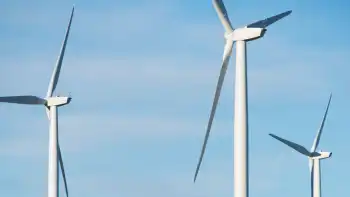
Doug Ford's New Stance on Wind Power in Ontario
ONTARIO - Ontario’s energy landscape is undergoing a significant transformation as Premier Doug Ford makes a notable shift in his approach to wind power. This change represents a strategic pivot in the province’s energy policy, potentially altering the future of Ontario’s power generation, environmental goals, and economic prospects.
The Backdrop: Ford’s Initial Stance on Wind Power
When Doug Ford first assumed the role of Premier in 2018, his administration was marked by a strong stance against renewable energy projects, including wind power. Ford’s government inherited a legacy of ambitious renewable energy commitments from the previous Liberal administration under Kathleen Wynne,…

